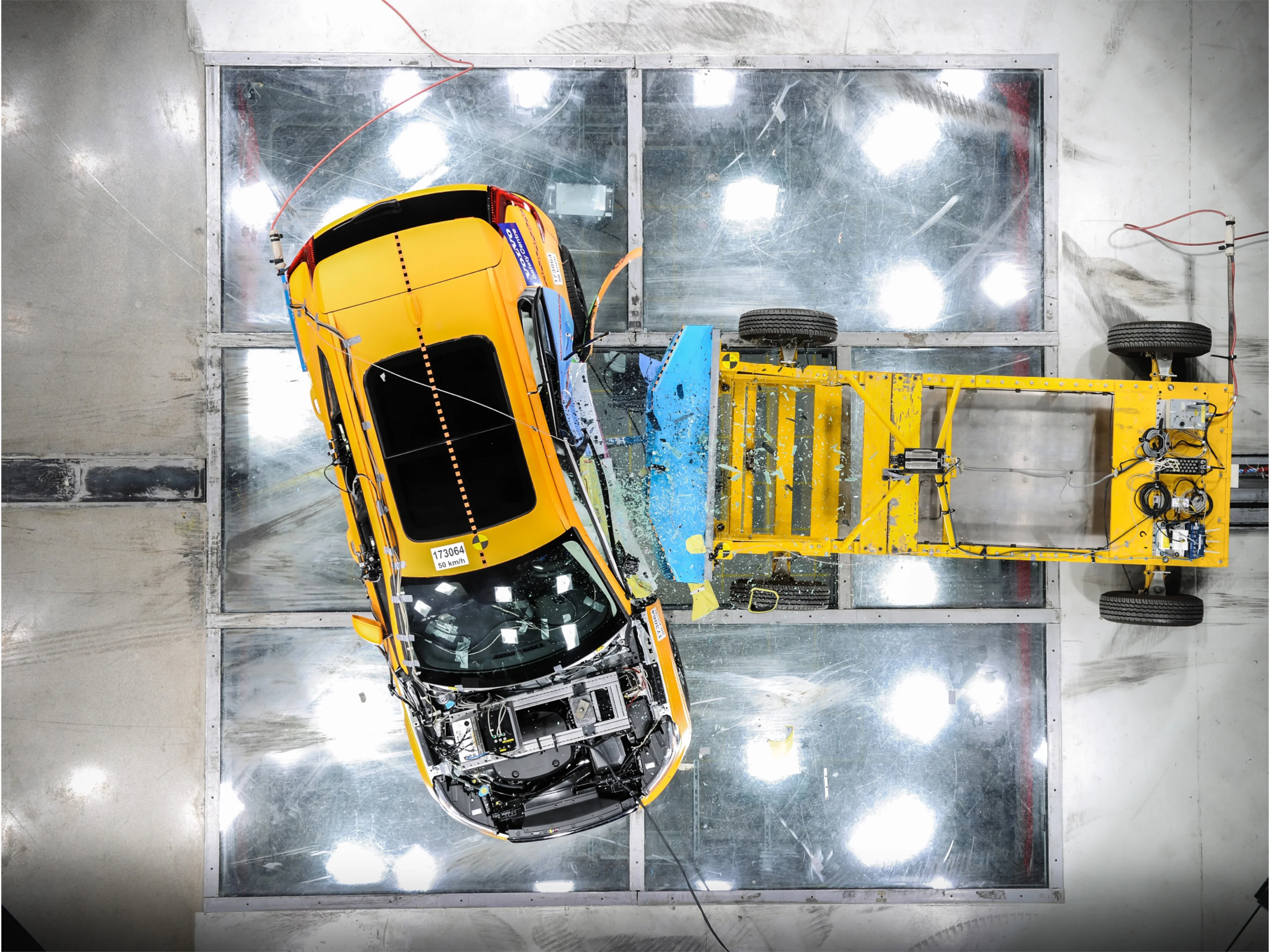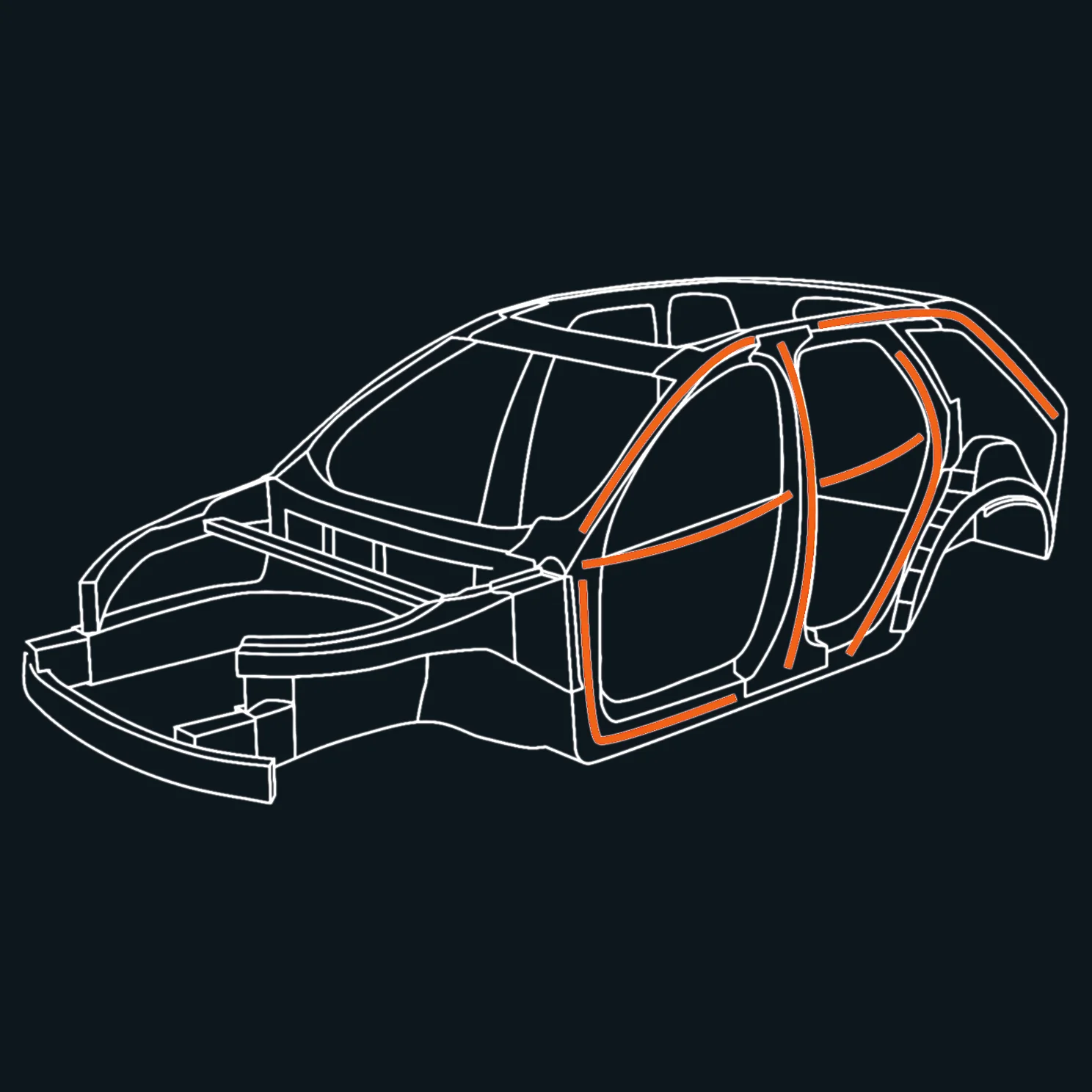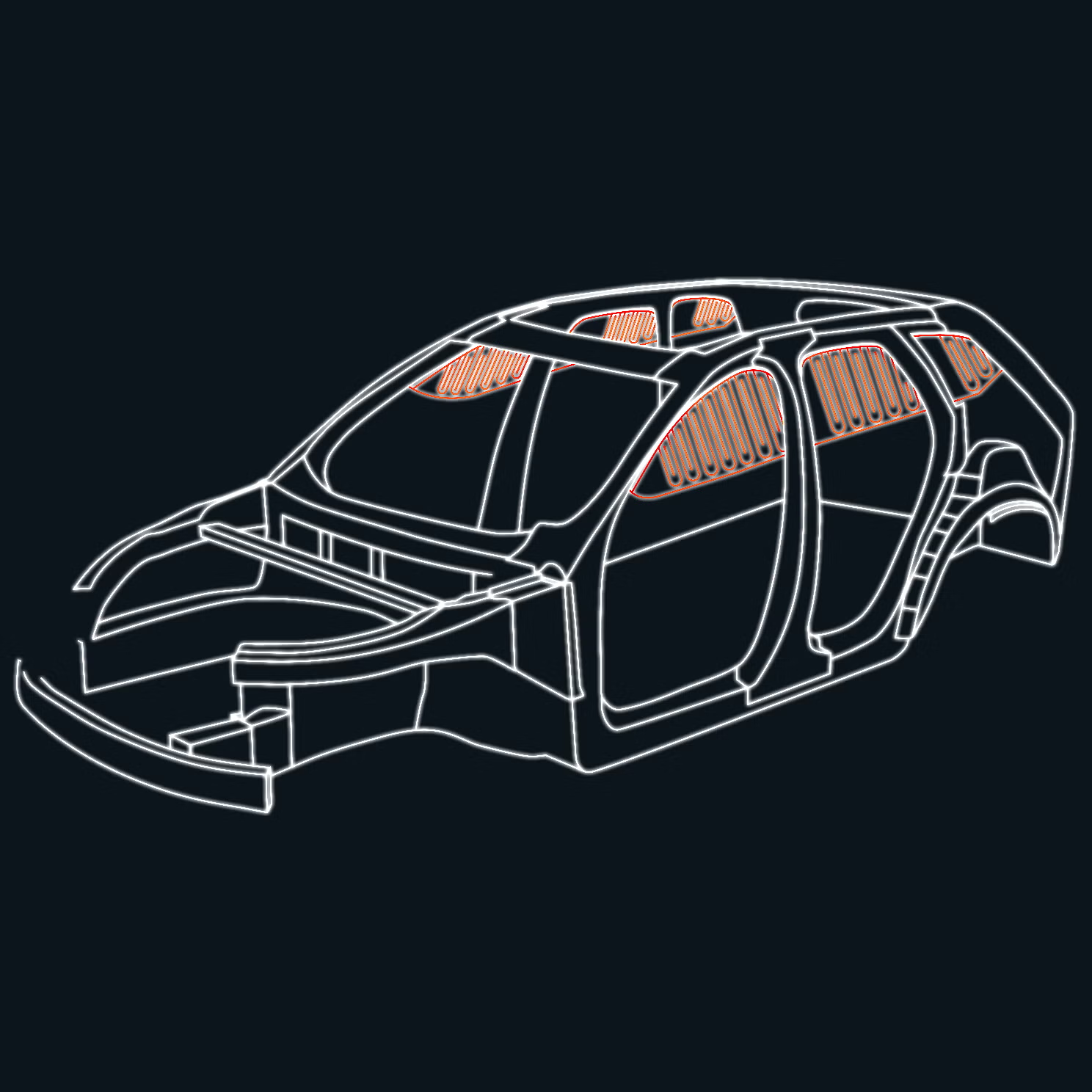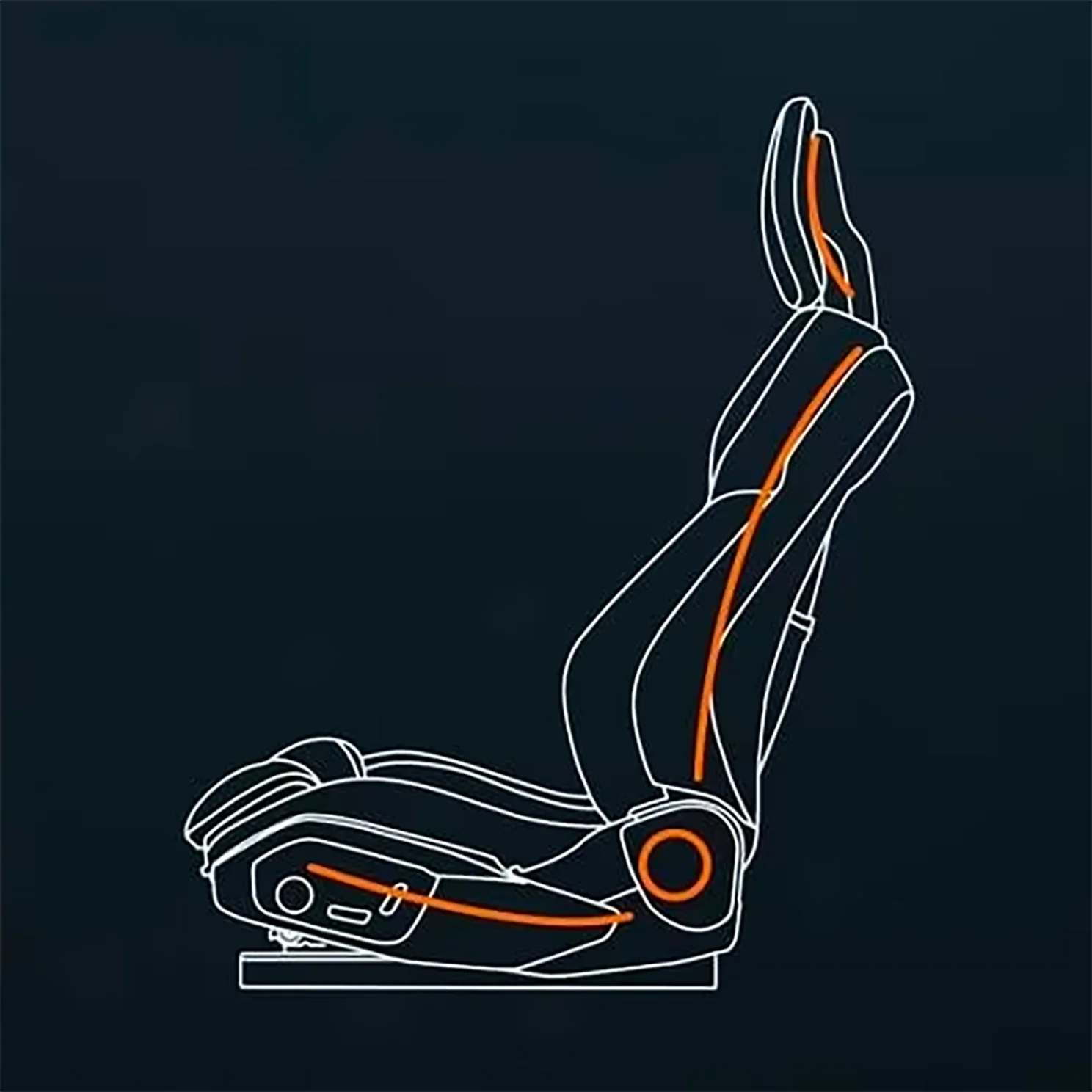
We've been building our safety knowledge through decades of industry-leading research in real-world scenarios. Since the 1970s, we have analysed over 50,000 cars from real-world accidents involving over 80,000 occupants.
Volvo Cars develops cars to be equally safe for everyone, regardless of gender, age, height, shape or weight. Since 2019, we've been sharing our real-world safety research for everyone to download.
“By collecting real-world data for a long time, it has been possible to identify what injuries arise in different crashes for women, men, and children”
Dr. Lotta Jakobsson, senior technical leader at Volvo Cars Safety Centre.

In 1970, the Volvo Traffic Accident Research Team was formed to create this extensive knowledge bank of research findings. This formed the backbone for many of our safety innovations that can be found in cars today.

Volvo's SIPS (Side Impact Protection System) and side airbag intelligently enhance safety, potentially lowering severe chest injuries by over 50 percent for all passengers.

SIPS, along with the rapid-inflating curtain airbag, reduces head injury risk by 75% in side collisions. It inflates in 0.04 seconds, pioneering enhanced protection for front and rear seat occupants.

Traditionally, women face higher whiplash risks due to anatomy and strength differences. In Volvo seats, our WHIPS system negates this, using robust head restraints and clever seat design to equalize whiplash risks for both genders.

Since we introduced the safety belt more than 60 years ago, it has saved over one million lives. In all types of crashes, it offers great protection for occupants regardless of size, gender or body shape.

We believe everyone has a right to be safe. Since 2019, through the E.V.A initiative, we've shared our safety research in real-world accidents since over 50 years ago.
Our safety development is based on knowledge from real-world data as we aim to make the cars safe for all and help protect people in real-world traffic situations, which is beyond simply addressing and fulfilling standardised crash tests for certification and ratings.
Data about the more than 50,000 cars in real-world crashes with over 80,000 occupants has been collected and included in our statistical database, providing information about why the crash happened and how injuries were caused. We then apply the findings to the development of new Volvo cars to better protect people from injuries. As we gathered data in the same way for many years, we’re able to map our progress and improve our success rate over the years.
We have tested with a female crash test dummy since 1995, starting with the only available small-sized female frontal impact dummy, HIII 5th percentile. In 2001 we included a small-sized side impact dummy, SID2s. As the world-first mid-sized female crash test dummy, we developed a virtual model of a pregnant woman in early 2000s. Ten years later we extended the crash test dummy family with a virtual mid-sized female crash test dummy for whiplash evaluation in rear- end impacts, as the only car manufacturer in the co-development of EvaRID.
We are sharing knowledge we gained from the crashes rather than the database, meaning no identifiable information about the people involved will be included nor possible to trace. Volvo Cars is using the data for safety research which is legitimate interest according to privacy laws incl. GPDR.
E.V.A stands for Equal Vehicles for All. Volvo is sharing our knowledge gained from research into real-world crashes since over a decade ago and calling for the industry to make cars equally safe for everyone regardless of gender, age, height, shape or weight.
The knowledge you are able to access and download through this project is a collection of more than 150 research papers. It is a collection of some of the research behind the development of safety innovations in Volvo Cars since the 1950s.
Over 160 research papers on occupant protection have been uploaded to this hub so far. It has been continuously expanded with more papers in this field and others. The library includes research papers on all types of injuries (e.g. whiplash injuries, head, chest and spine injuries and injuries to upper and lower extremities) in all types of crash situations. The library also includes research papers on child safety. In the future, it will be expanded to include more of Volvo's research.
Volvo Cars’ safety features complement safe driving practices and are not intended to enable or encourage distracted, aggressive, or otherwise unsafe or illegal driving. Ultimately, the driver is responsible for the safe operation of the vehicle at all times. Described features may be optional and availability may vary from one country to another.